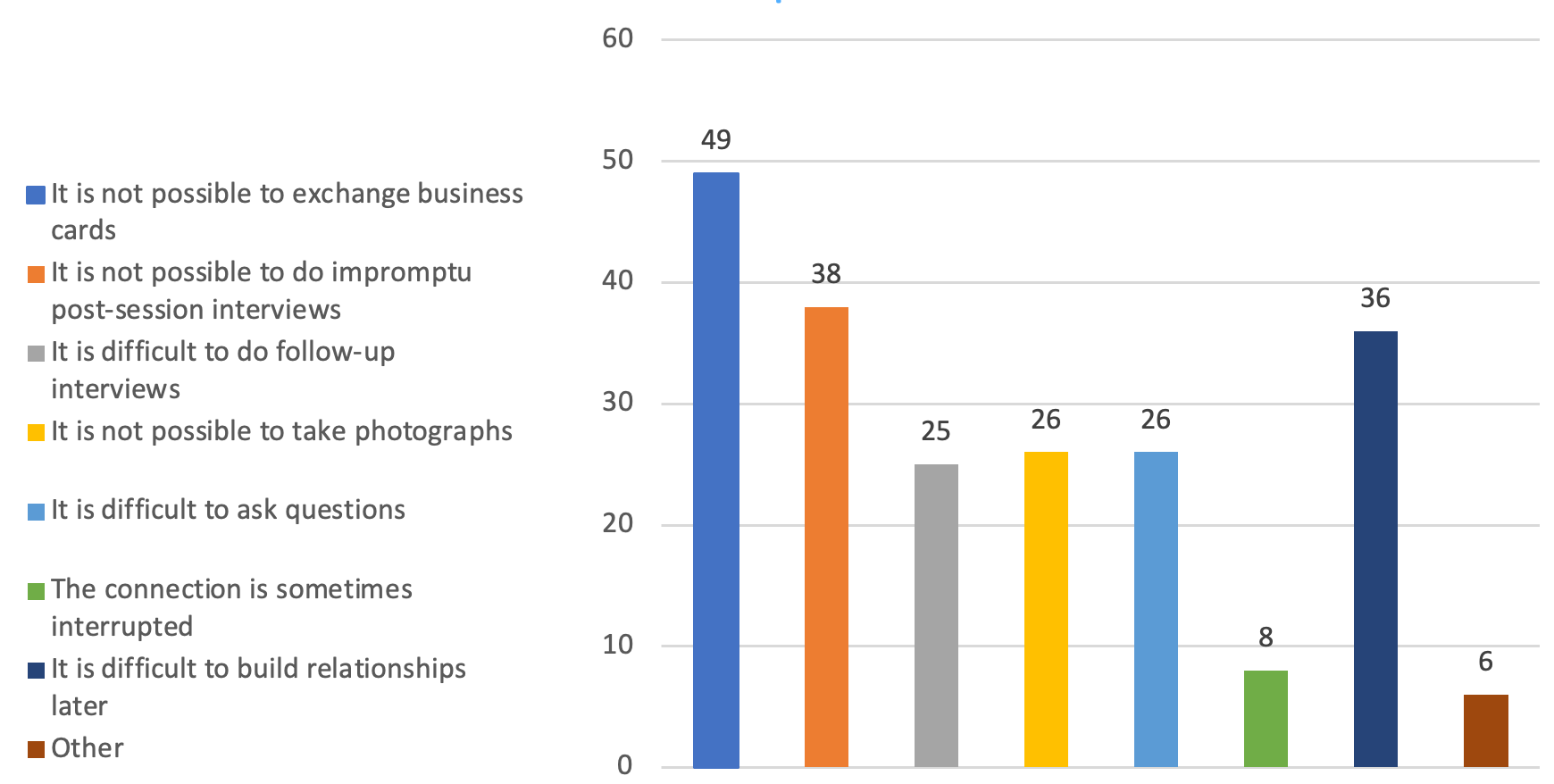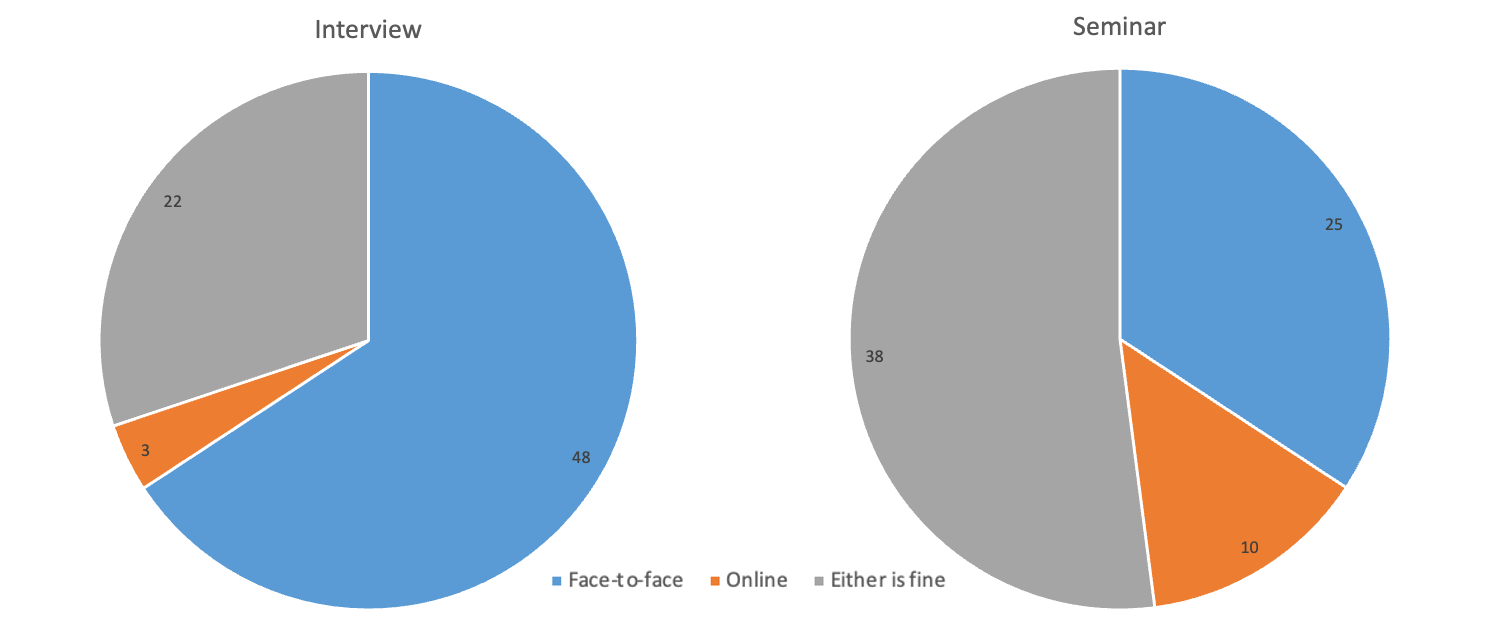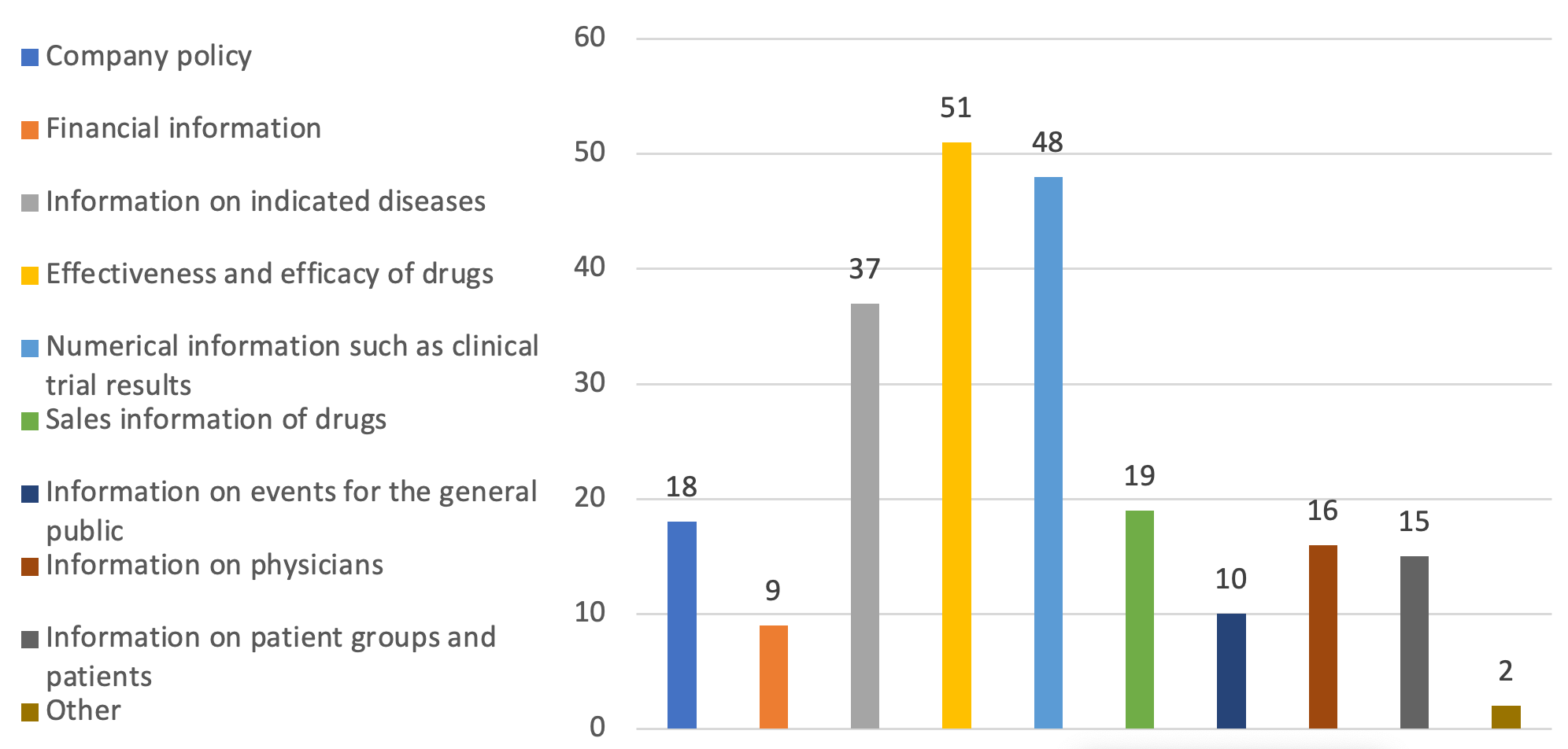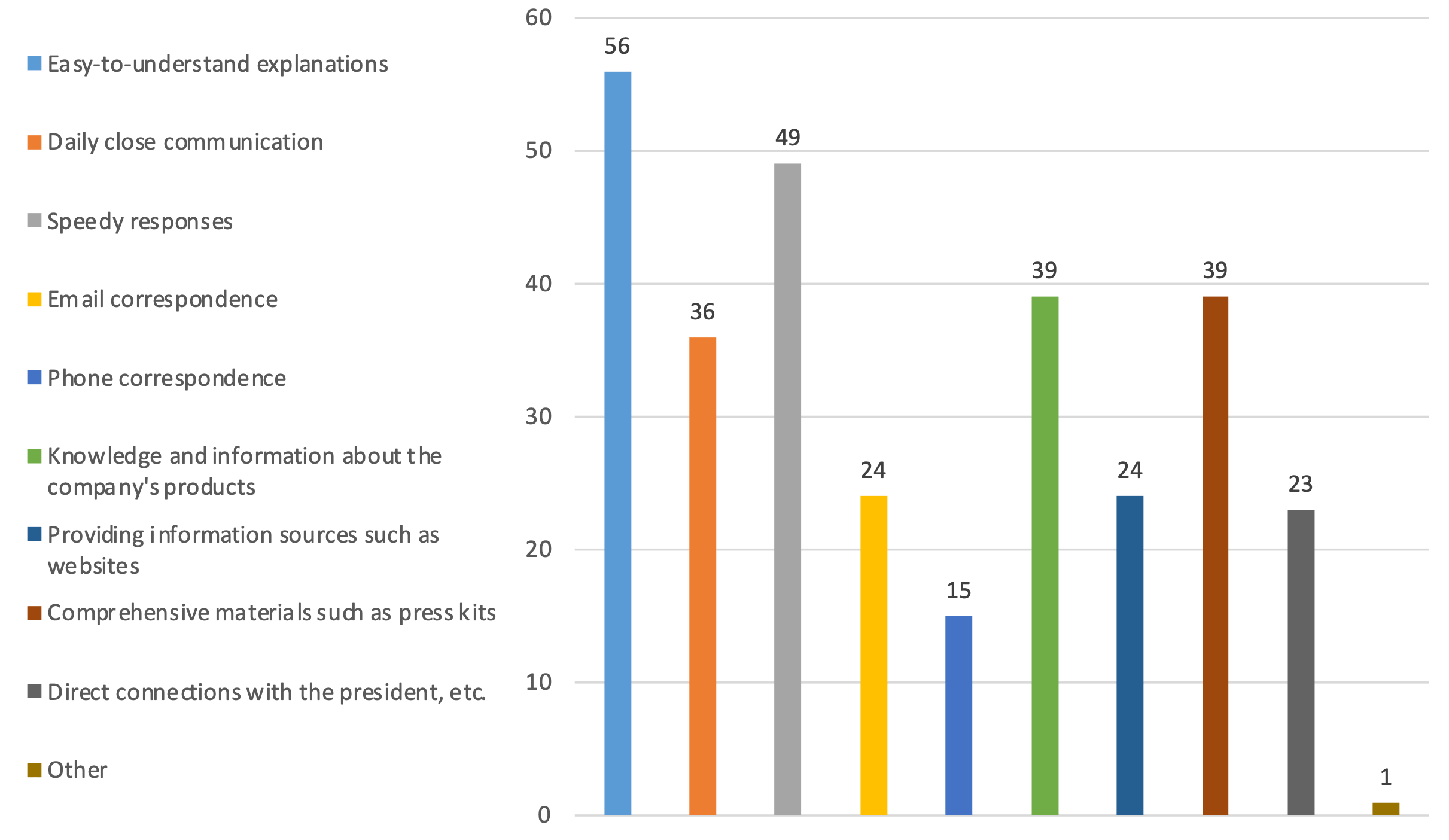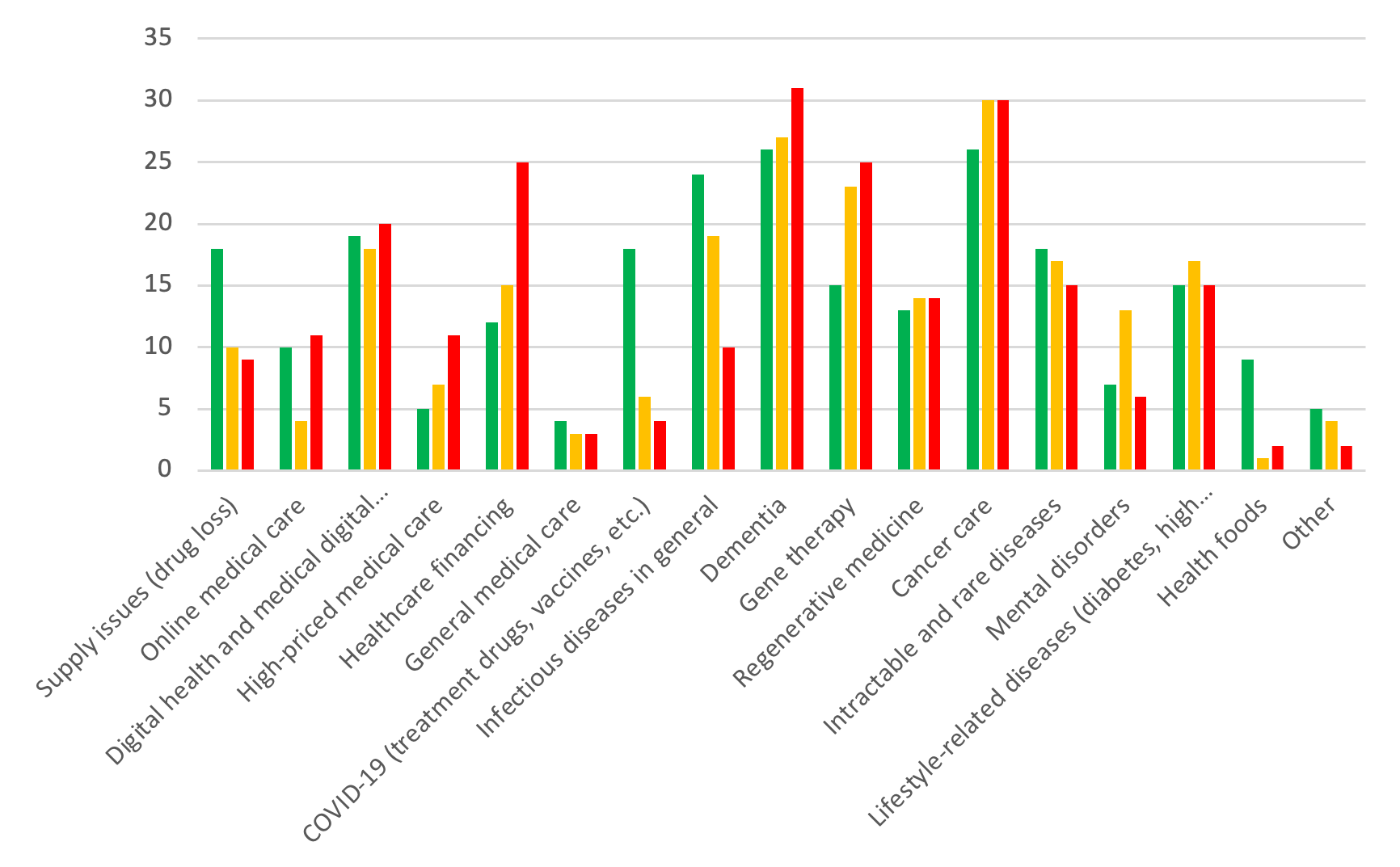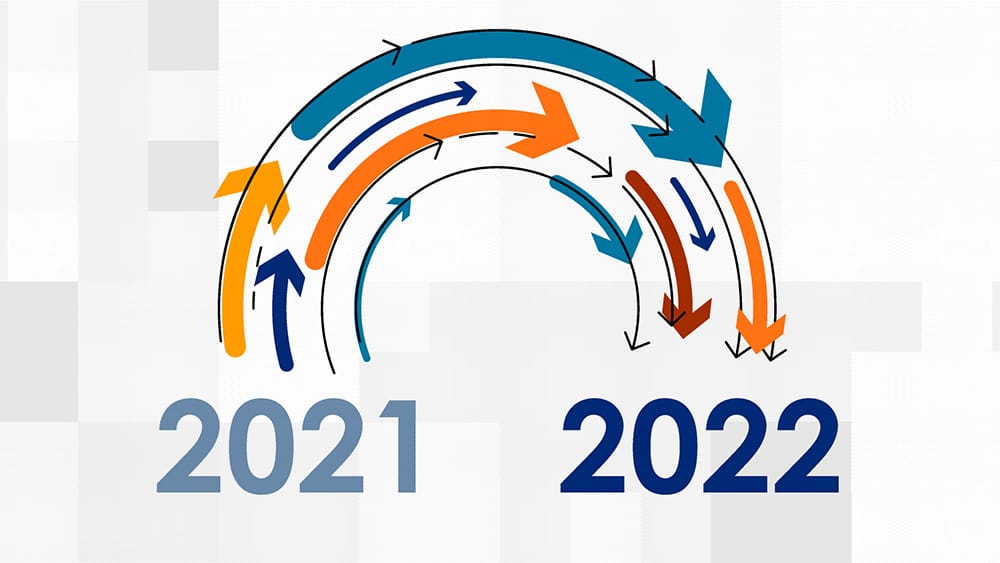In recent years, the environment surrounding the healthcare industry has changed dramatically. In a society that has experienced a pandemic, interest in health and medical care is at an all-time high, and there is renewed focus on the reliability and transparency of healthcare companies. Increased competition, technological innovation, and the personalization of medical care are diversifying the perspectives from which consumers and healthcare professionals evaluate healthcare companies. As a result, it is increasingly necessary for companies to differentiate themselves from the competition.
At the same time, the advancement of the digital society has made it easier for corporate images to be spread online, creating a situation where brand power is directly linked to trust and choice. Against this backdrop, it is essential for healthcare companies to focus on recognition and branding to remain competitive and achieve sustainable growth.
Lessons from Recent Press Coverage
How the Voice of a Senior Executive Captured the Hearts of the Press
Earnings announcements are an annual opportunity for top management to attend a press conference and express their thoughts—an ideal chance for so-called “top PR.” The media, on the other hand, must carefully choose what to cover from among the numerous announcements made and which companies to focus on in their reporting, which can be a challenging task.
Recently, a manufacturer known for its “employment-oriented” corporate culture since its establishment decided to reduce its workforce by 10,000 employees while maintaining a profitable financial position. Normally, news coverage of workforce reductions tends to take a negative tone, but the president of the manufacturer, who was interviewed, spoke candidly in his own words. As a result, the coverage was less critical and more understanding of the company’s first step toward breaking out of its stagnant performance. 1
Had there been no statement from top management, and the company had simply issued a press release announcing the workforce reduction, the article likely would not have been written in the same way. This is a case in which “communication based on trust and empathy” was successful, as top management openly expressed their feelings and successfully conveyed their passion for restructuring to the reporter.
Human Stories Resonate Most with Readers
As a company grows in prominence within society, its internal activities and the thoughts and feelings of its employees often remain unseen from the outside. It is the role of the media to uncover these stories, and the role of corporate PR to communicate them to the public in an accessible manner and gain the understanding and empathy of society.
A national newspaper once published a three-part series in the business section about a food manufacturer with a 100-year history. The series chronicled the company’s setbacks and revitalization following repeated scandals and served as a valuable case study. The portrayal of employees learning from mistakes and striving while revisiting the founding spirit of the company were recognized as a “human story with a face” and resonated with readers. 2
Impact on Corporate Trust and Crisis Response
What happens when “communication based on trust and empathy” breaks down? This becomes especially evident in a company’s response to a scandal and the media’s reaction to it. As society takes a more critical view of corporate compliance, respect for human rights, and the prevention of harassment, recent cases have shown that if companies mishandle such situations, many stakeholders—including business partners, customers, shareholders, and employees—will be affected. It is also important to remember that a company’s reputation and public impression can be greatly influenced by how well it handles public relations following a scandal.
Why Healthcare Companies Should Work to Improve Awareness and Brand Strength
Let’s take a look at the data COSMO has collected on why healthcare companies must work to enhance their brand power and what stakeholders value in a healthcare company.
- Recruiting Competent Talent
- COSMO’s data shows that 35% of job seekers responded “fairly important” or “very important” when asked how important company recognition is when selecting jobs to apply for. 3
- Among job seekers, 80% perceived corporate websites to be useful sources of information, and 90% responded that the design and information in the sites affect their level of interest in the company.4
- Improved Corporate Credibility
- Companies with high levels of public awareness tend to see higher levels of credibility and affinity, and a similar trend is observed among physicians as well. 5
- Increased Sales and Business Expansion
- Stakeholder recognition leads to the creation of new business opportunities.
- Media coverage that highlights a company’s potential increases corporate value, positively impacting fundraising.
These results indicate that improving the recognition and brand power of healthcare companies is essential for maintaining competitiveness and achieving sustainable growth.
Key Points in Stakeholder Evaluation of Companies
- Pharmaceutical Industry Job Seekers 6
- Corporate future potential and stability
- Work environment (telework, work-life balance)
- Personal growth and ability to do the work they most want to do
- Physicians 7
- Product development capabilities
- Patient-centered management and efforts to improve patient quality of life (QOL)
- Ability to provide information (for both physicians and patients)
- Patients 8
- Possession of cutting-edge technology
- Provision of innovative therapeutic drugs
- Proactive dissemination of information to patients
- Reliability
From the above, it can be derived that the common points of interest are “innovativeness (development capability)” and “a patient-centered perspective.”
Consistent Corporate Communication Strategy Is the Key to Success
Finally, let’s summarize the concepts that lead to a successful “communication strategy based on trust and empathy.”
Consistency and continuity of communication messages are essential for establishing recognition and brand strength in healthcare companies. It is said that message consistency is built on the interaction of three elements: LOGOS (logic), PATHOS (emotion), and ETHOS (trust).
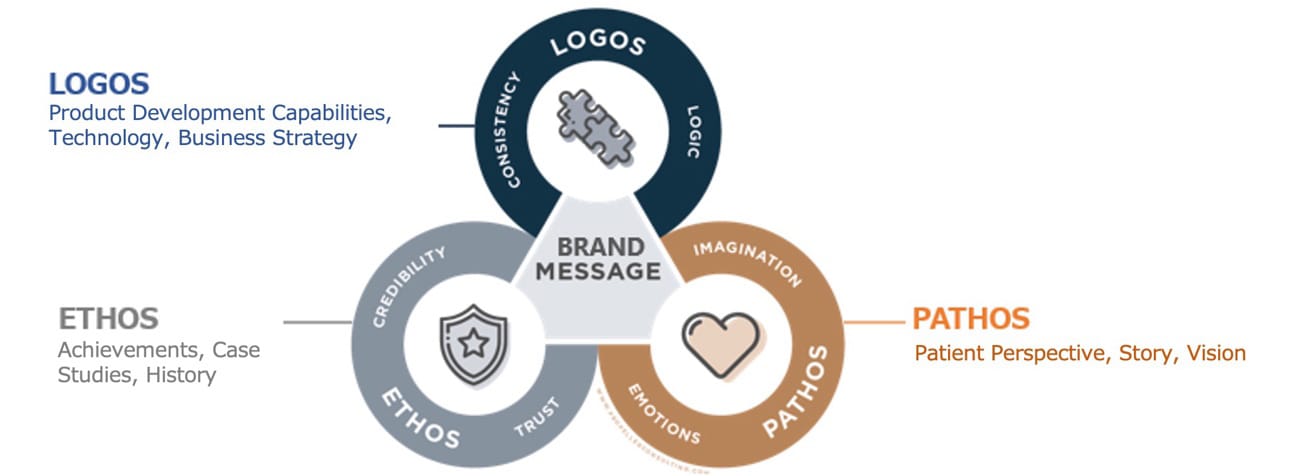
The unification of logical messages clarifies corporate philosophy, values, and direction, making it easier for stakeholders to understand the company’s stance. Adding emotionally resonant elements helps people feel a sense of familiarity and emotional connection to the brand. Stories of social contribution and patients are not mere advertisements—they evoke empathy and foster long-term support. Furthermore, conveying the company’s history and examples of accomplishments creates a clear, fact-based corporate image. When logical messages, emotional elements, and fact-based examples work in harmony, trust for the company is established.
A consistent communication strategy, continued in a cycle, gives stakeholders the impression that the company is sincere and trustworthy. It strengthens the corporate brand value and becomes a key element of corporate competitiveness.
COSMO offers an “OODA Cycle Media Plan Package” to support successful brand communication for healthcare companies.
We customize OODA (Observe, Orient, Decide, Act) into a tailored, practical, and concrete PR plan in line with your company’s unique situation. By continuously implementing this plan as an evolving cycle, we support companies in achieving success in brand communication.
If you are interested in learning more about corporate branding, please feel free to contact us at Info_cosmo@cosmopr.co.jp
1 Asahi Shimbun, “Panasonic to cut 10,000 jobs, ‘I’m thinking of quitting as president,’ top management reveals feelings” (May 14, 2025)
2 Asahi Shimbun, Economy INSIDE, “100 years after its founding, ‘Two incidents’ that have been passed down unchanged, what lessons have Megmilk Snow Brand learned” (May 11, 2025)
3 Noted Inc. Survey: https://prtimes.jp/main/html/rd/p/000000005.000089790.html
4 Career-tasu. Survey on Job-hunting: https://www.career-tasu.co.jp/wp/wp-content/uploads/2023/07/202307_hpchosa.pdf
5 Corporate Brand Evaluation Report: https://www.mixonline.jp/tabid1431.html?acatid=537
6 Pharmaceutical Industry Career Attitude Survey: https://answers.ten-navi.com/pharmanews/20181/
7 Nikkei Research. Survey of Physicians’ Evaluation of Pharmaceutical Companies’ Medical Support
8 COSMO Patient Insight Research Report: https://cosmopr.co.jp/en/library-jp/library-insightreport01-en/





